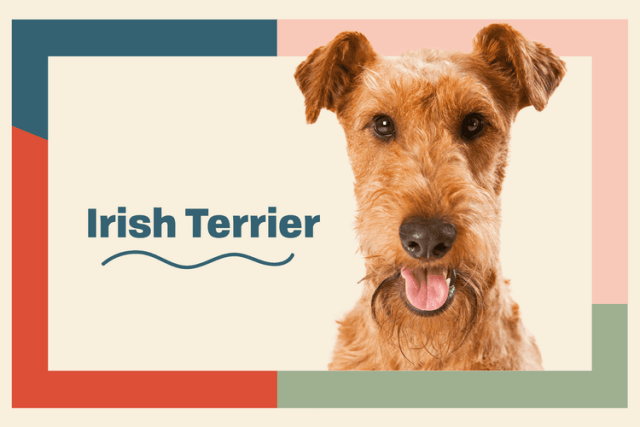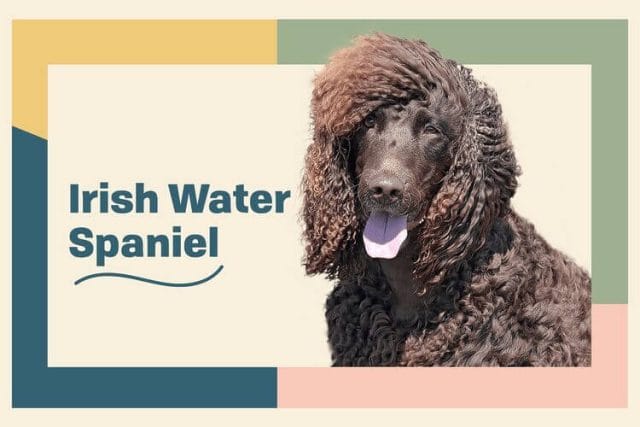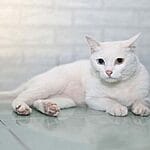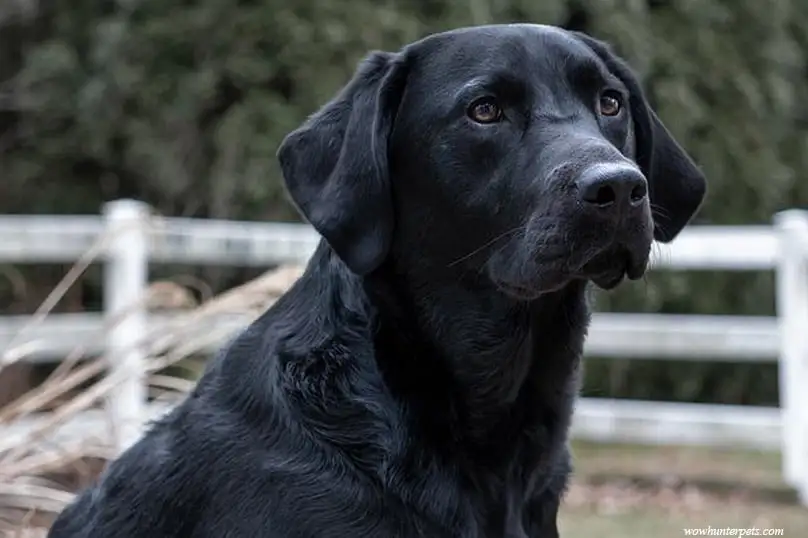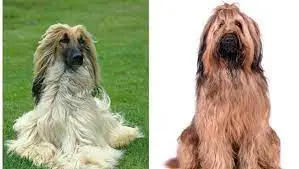Chion – Mixed Dog Breed Characteristics & Facts
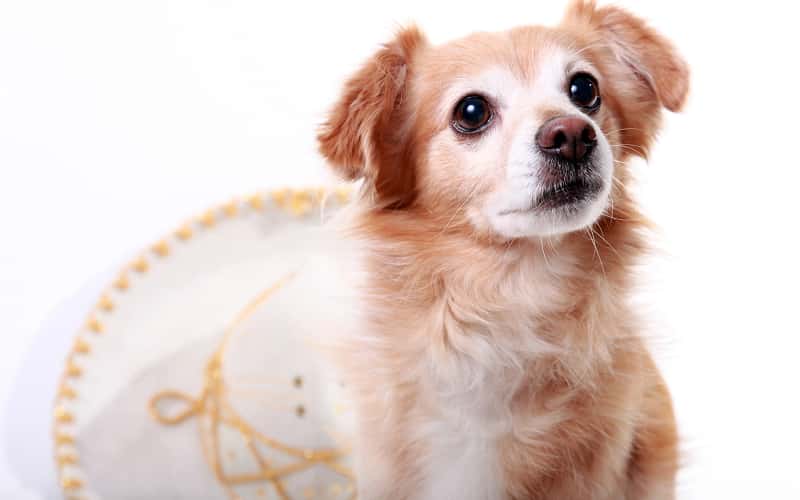
The Chihuahua and Papillon dog breeds were crossed to create the mixed-breed Chion. These puppies are small, playful, and obedient, inheriting some of the best traits from both of their parents. A few of the names for cions include Papihuahua, Pap-Chi, and Chi-a-Pap.
These mixed-breed dogs can be found in shelters and breed-specific rescues despite their unfortunate status as a designer breed, so don’t forget to adopt! Shop not! These cute puppies make excellent apartment dogs for city dwellers who are active, but they are best suited to small or one-person households.
They often have a yappy disposition as well. This dog might be the one for you if you’re looking for a silly, little dog with a big personality who will keep you on your toes, serve as an alert dog, and stick to you like glue! For a list of Chion facts and mixed dog breed traits, see below!
Chion Mixed Dog Breed Picture
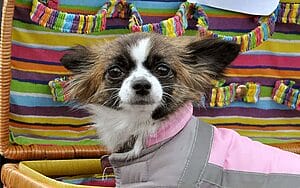
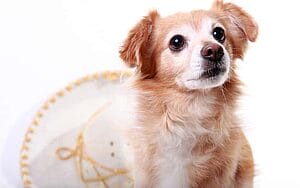
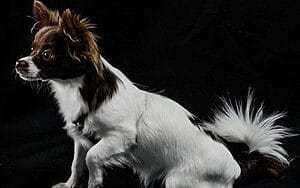
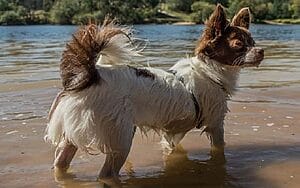
Chion – Mixed Dog Breed Characteristics
| Adaptability | *** |
| Adapts Well To Apartment Living | **** |
| Good For Novice Owners | *** |
| Sensitivity Level | *** |
| Tolerates Being Alone | ** |
| Tolerates Cold Weather | ** |
| Tolerates Hot Weather | *** |
| All Around Friendliness | *** |
| Affectionate With Family | ***** |
| Kid-Friendly | *** |
| Dog Friendly | *** |
| Friendly Toward Strangers | ** |
| Health And Grooming Needs | *** |
| Amount Of Shedding | ** |
| Drooling Potential | ** |
| Easy To Groom | *** |
| General Health | **** |
| Potential For Weight Gain | **** |
| Size | ** |
| Trainability | *** |
| Easy To Train | *** |
| Intelligence | *** |
| Potential For Mouthiness | **** |
| Prey Drive | *** |
| Tendency To Bark Or Howl | **** |
| Wanderlust Potential | * |
| Physical Needs | *** |
| Energy Level | ***** |
| Intensity | *** |
| Exercise Needs | ** |
| Potential For Playfulness | **** |
Vital Stats:
| Dog Breed Group: | Mixed breed dogs |
| Height: | 5 to 11 inches |
| Weight: | 4 to 11 pounds |
| Life Span: | 10 to 15 years |
Highlights
Dogs of mixed breeds are chons. Unlike their Chihuahua or Papillon parents, they are not purebred animals. Chions are primarily white, fawn, cream, golden-dark brown, and black in color. Sometimes they have solid-colored coats, and other times they have a variety. They typically have smooth, short- to medium-length coats. There are also chions with longer coatings, but they might not be as allergy-friendly.
Both coats are simple to maintain. I think a weekly brushing will do. Chions have a lot of energy. Make sure your dog gets at least one enjoyable 30- to 60-minute walk per day, as well as some enjoyable, active playtime and shorter walks. The Chion is willing to go to any lengths to please its owner, despite the fact that they can be stubborn and challenging to housebreak.
Small dogs like the Chion can be easily hurt by curious children. The majority of the time, chions prefer to be around adults or older children who can play gently. If they are introduced gradually and calmly, other pets can get along with the Chion. They might, however, prefer to be the only pet in the house.
History
Chions have been around for a while in their natural state, but in the late 1990s, probably in North America, designer breeders began purposefully breeding Chihuahuas and Papillons together. Breeders hoped to produce a new, adorable small pup with the Papillon’s distinctive coat by crossing the two parent breeds. As the demand for the mixed breed puppies increased, they continued to produce Chions.
Despite being developed as a designer breed, some members of the Chion breed have ended up in shelters or under the care of rescue organizations. If you decide that this breed is the one for you, think about adoption. As they occasionally take in mixed breed dogs and find homes for them, check with your local shelters, look up Chion rescues, or check with breed-specific Papillon or Chihuahua rescues.
Size
As a relatively recent mixed breed, there aren’t many size guidelines for the Chion. Having said that, you can anticipate Chions to be on the smaller side as a result of their Papillon and Chihuahua parentage. They stand between five and eleven inches tall from the shoulder and weigh between four and eleven pounds. Some, though, might be smaller or larger than usual.
Personality
Many Chion admirers describe the temperaments of these puppies as “plucky.” They tend to have a Napoleon complex and believe they are much bigger than they actually are, despite the fact that they are a small breed and will happily nap on your lap! Since the Chihuahua and the Papillon were both developed with the intention of being companion animals, Chions are among the most devoted puppies available.
They can develop strong attachments to their humans, so if they feel like someone else is stealing their attention, they may become somewhat possessive. These little dogs enjoy barking or being “yappy.” The Chion is the best option if you want a watchdog that will warn you if anyone approaches your door. Early training is best for these dogs to stop any undesirable barking behaviors.
The Chion is willing to go to any lengths to please its owner, despite their tendency to be stubborn and challenging to housebreak. Chions require a lot of maintenance, so a single person or a small family may be the best fit for them.
Health
The Chihuahua and Papillon mixed breeds are both predisposed to some of the same health issues as the Chion. While the majority are generally in good health, a few may be predisposed to certain ailments, so it’s crucial to maintain proper care and regular veterinary examinations. Chions are more likely to experience the following health issues than other people:
- Trachea collapsing.
- Corneal soreness.
- Hypoglycaemia.
- Knee luxation.
- Dental problems.
Care
As with all dogs, you should continue to schedule your Chion’s routine checkups with the vet to catch any health issues early. Your veterinarian can assist you in creating a routine of care that will keep your dog healthy. Like many small dogs, Chino has a high energy level and is prone to gaining weight.
Make sure your dog gets at least one enjoyable 30- to 60-minute walk per day, as well as some enjoyable, active playtime and shorter walks. Every day, check their ears for debris and vermin, and clean them as your veterinarian advises. Before they grow too long, trim your dog’s nails—typically once or twice per month. It shouldn’t be making noises against the ground.
This is where your groomer can help. Maintaining your Chion’s oral health should be your top priority when providing for their needs. As small breeds are more likely to have dental problems, you should brush their teeth every day. You can get instructions from your vet on how to properly brush your dog’s teeth.
Feeding
A small breed with a lot of energy should be catered for in an ideal Chion diet. If you overfeed them, they have a tendency to put on weight, so make sure to follow a regular feeding schedule and don’t leave food out all day. Also, keep their treat intake in check. The Chion’s nutritional requirements will change from puppyhood to adulthood and will continue to change into their senior years, just like those of all dogs.
There is far too much variation among individual dogs—including weight, energy level, and health—to make a specific recommendation, so you should ask your vet for advice on your Chion’s diet.
Coat Design and Maintenance
Chion coats frequently combine the coats and colors of their Papillon and Chihuahua parents. Chions are primarily white, fawn, cream, golden-dark brown, and black in color. Sometimes they have solid-colored coats, and other times they have a variety. They typically have smooth, short-to-medium-length coats with the Papillon’s distinctive wispy, butterfly-shaped ears.
There are also chions with longer coatings, but they might not be as allergy-friendly. Fortunately, both coats are very simple to maintain. Weekly brushings should be sufficient. Chions don’t do well in harsh weather because their coats tend to be shorter. Your dog will probably need a coat in the winter, and in the summer, when there is less fur to protect them, you might need to put dog sunscreen on their ears, noses, and other sensitive areas.
Kids and other animals
Small dogs like the Chion can be easily hurt by curious children. The majority of the time, it prefer to be around adults or older children who can play gently. That being said, the Chion can be a wonderful, kid-friendly playmate for kids who learn early how to approach and play with a small dog. It can get along with other pets if they are introduced to them gradually and calmly when it comes to other animals in the home.
Early socialization will facilitate a smooth transaction. However, Chion prefer to be the only animal in the home and enjoy being the king or queen of the castle. The key factors are training, socialization, and luck of the draw because many Chongs get along just fine with other dogs and cats.
Rescue Teams
Because it’s a mixed breed, it might be challenging to find a rescue that specializes in their breed. However, as they frequently care for mixed-breed animals as well, you might want to try Chihuahua or Papillon breed-specific rescues.
Creator: PetsCareTip



